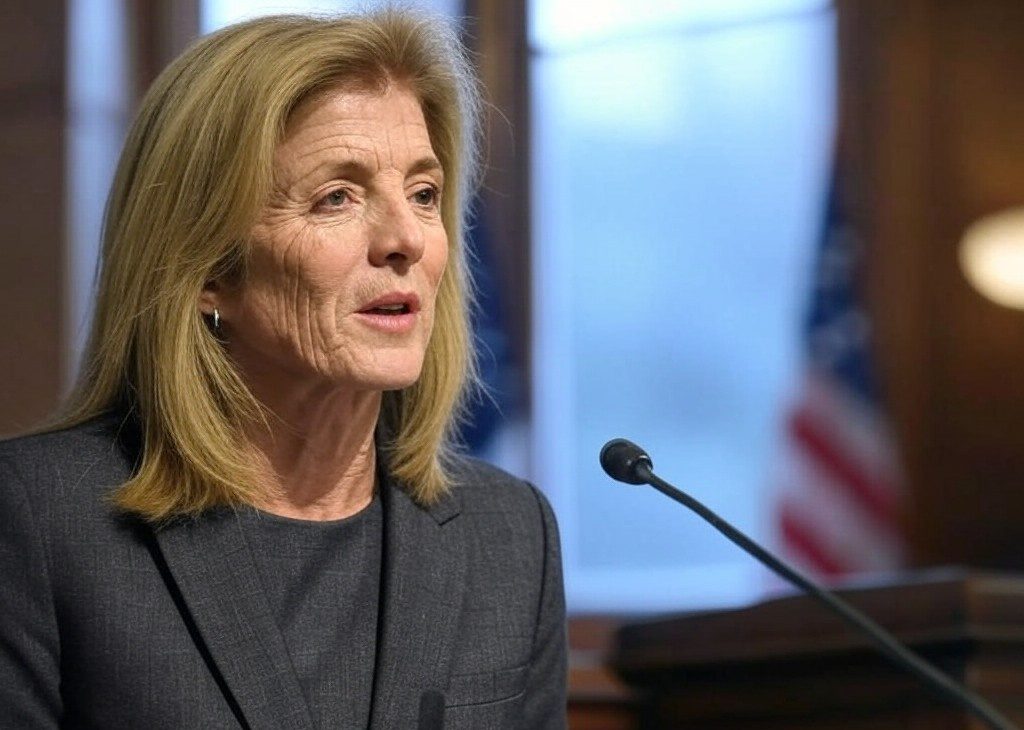Caroline Kennedy’s Stand Against Cousin Robert F. Kennedy Jr.’s Health Nomination
In a bold and deeply personal move, Caroline Kennedy, the daughter of former President John F. Kennedy, has taken a stand against her cousin Robert F. Kennedy Jr.’s nomination as health secretary under President Donald Trump. Writing in a letter addressed to U.S. Senators, Kennedy condemned her cousin’s actions and character, drawing attention to both his controversial views and troubling personal history.
The Letter and Its Implications
On a Tuesday, Caroline Kennedy articulated her concerns in a letter that was later obtained by The Associated Press and reported by The Washington Post. In this letter, she described Robert F. Kennedy Jr. as a “predator” who is “addicted to power.” Such a characterization is not only stark but reflects a growing discontent among members of the Kennedy family regarding Robert’s actions and public stances.
Caroline Kennedy’s letter comes at a time when her cousin has faced significant backlash, particularly for his views on vaccines. She stated that his opinions on vaccination are disqualifying for his nomination as health secretary, a position that requires a profound commitment to public health and scientific integrity.
Personal Anecdotes and Family History
In her letter, Caroline recounted personal memories from their childhood, offering a glimpse into their family dynamics. She mentioned that Robert’s basement, garage, and dorm were akin to a “perverse scene of despair and violence,” where drug use was prevalent. This revelation is particularly alarming given Robert’s past struggles with addiction, including a well-documented history of heroin use and a guilty plea for bringing it on a plane in 1984.
Caroline’s candid portrayal underscores her belief that Robert F. Kennedy Jr. is not only unfit for the role but also poses a danger to public health. “He preys on the desperation of parents of sick children,” she wrote, highlighting the contradiction between his personal actions—having vaccinated his own children—and his public stance against vaccinations. This hypocrisy has raised ethical concerns, particularly in a role that should prioritize the health and safety of the population.
The Financial Angle
Adding another layer to her argument, Caroline Kennedy pointed out that Robert is profiting from a lawsuit against Merck related to its human papillomavirus vaccine, Gardasil. She revealed that he earned over $850,000 from this arrangement, implying that he is willing to enrich himself while simultaneously discouraging others from accessing a vaccine that could prevent cervical cancer. “In other words, he is willing to enrich himself by denying access to a vaccine that can prevent almost all forms of cervical cancer and which has been safely administered to millions of boys and girls,” she stated, emphasizing the moral and ethical implications of his actions.
Historical Context and Family Legacy
The Kennedy family has a storied history in American politics, marked by tragedy and public service. Caroline reflected on her father’s and uncle’s legacies, stating, “Unlike Bobby, I try not to speak for my father – but I am certain that he and my uncle Bobby, who gave their lives in public services, and my uncle Teddy, who devoted his Senate career to improving health care, would be disgusted.” This statement encapsulates the weight of family history and the expectations that come with being a member of the Kennedy clan.
Next Steps in the Nomination Process
Robert F. Kennedy Jr. is set to appear before the Senate Finance Committee in a crucial session aimed at evaluating his fitness for the role of health secretary. Additionally, another hearing will take place in front of the Senate Health, Education, Labor, and Pension Committee, a panel formerly chaired by his late uncle, Ted Kennedy. The outcome of these hearings will significantly influence both his potential appointment and the ongoing debate surrounding public health policies in the United States.
Public Reaction and Broader Implications
Caroline Kennedy’s letter has sparked discussions across social media and among public health advocates. Many have echoed her sentiments, emphasizing the importance of scientific integrity in health leadership. The implications of Kennedy’s nomination extend beyond family dynamics; they touch on critical issues of public trust, vaccine skepticism, and the ethical responsibilities of those in positions of power.
The backlash against Robert F. Kennedy Jr. is indicative of a larger societal concern regarding misinformation in health-related discourse. As the COVID-19 pandemic has shown, public trust in health officials and their guidance is crucial for effective health interventions. Caroline Kennedy’s strong words resonate with many who advocate for evidence-based policies in health care.
Conclusion
Caroline Kennedy’s denunciation of Robert F. Kennedy Jr. not only reflects personal family tensions but also raises critical questions about public health policy and the qualifications of those nominated to lead such initiatives. As the Senate hearings approach, the focus will undoubtedly be on Robert’s qualifications, his controversial views on vaccination, and the potential consequences of his leadership on public health. The Kennedy legacy is one of service, integrity, and commitment to the common good, and Caroline’s position underscores the importance of maintaining these values in the face of challenges posed by members of the family itself. As the debate unfolds, it is imperative to consider how leadership in health can influence the well-being of the nation, especially in times of crisis.












